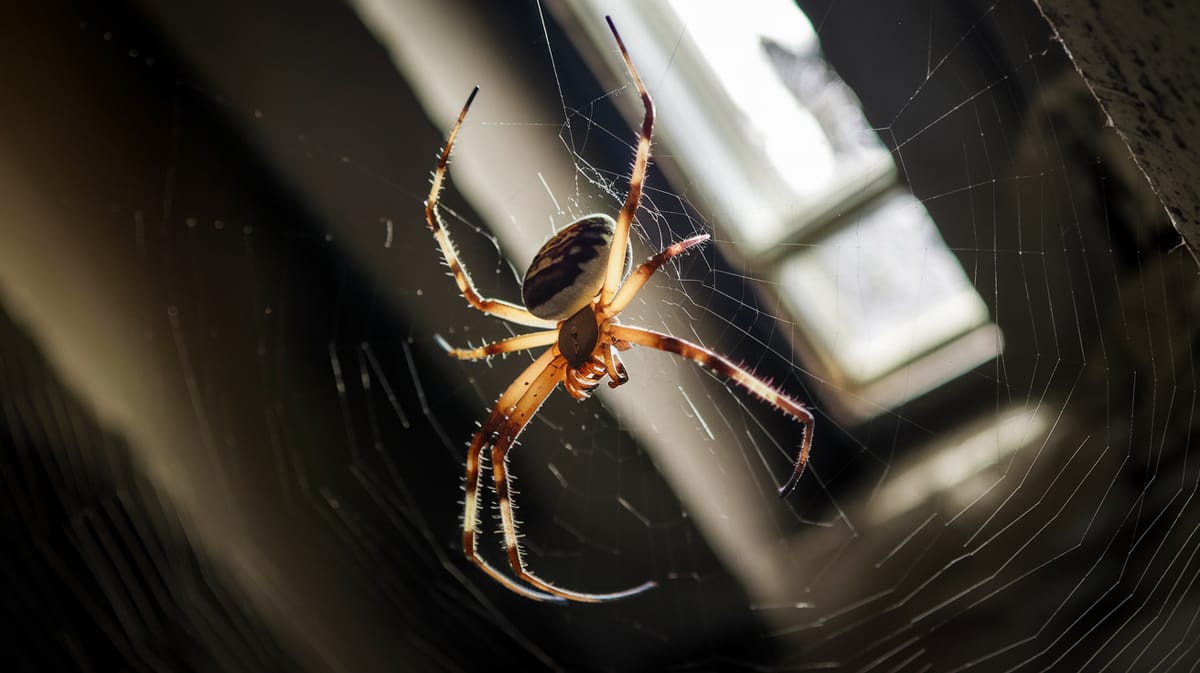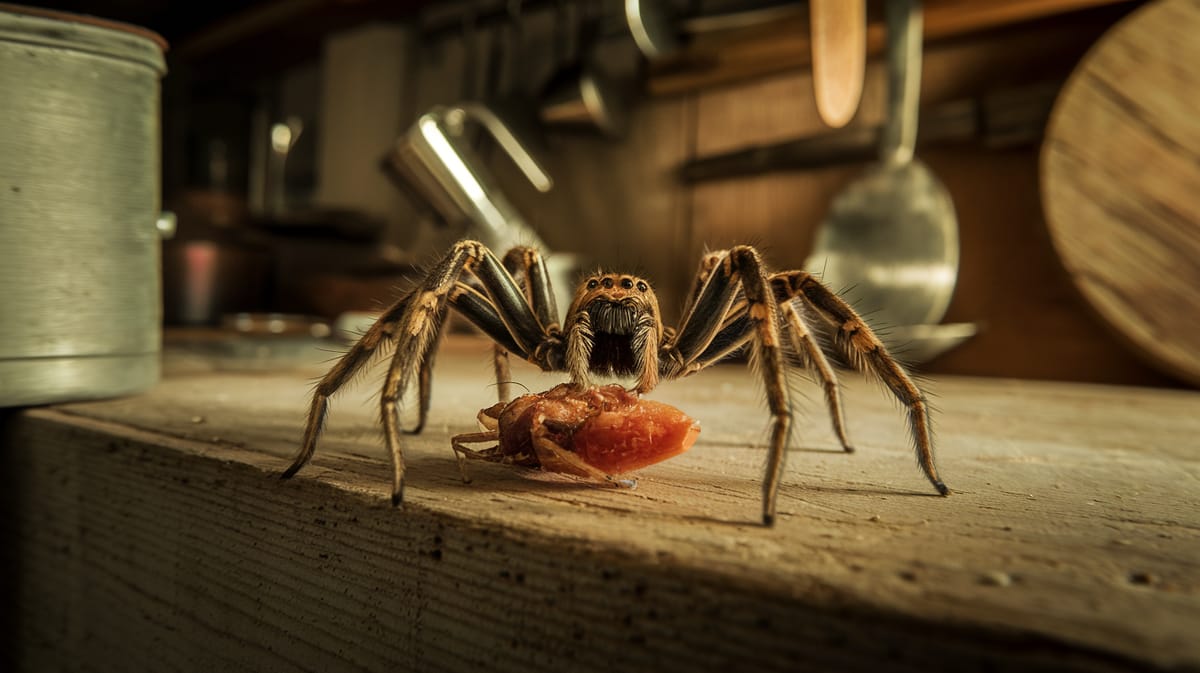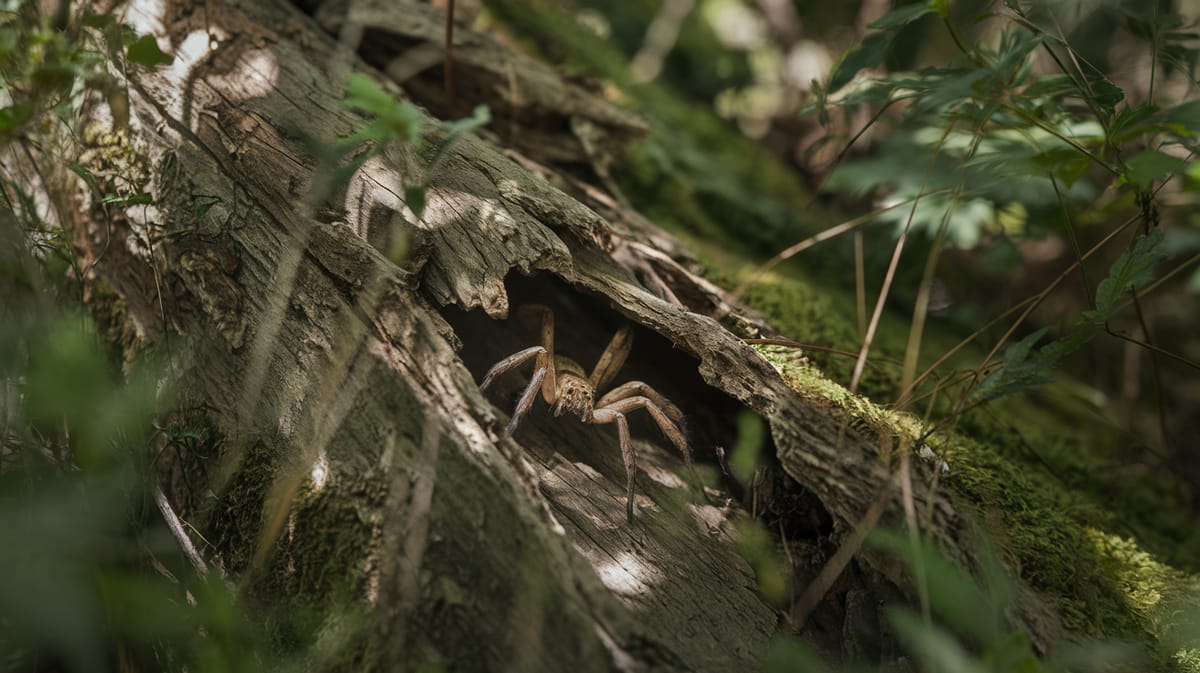Brown Recluse Spider
Elusive and solitary, the Brown Recluse Spider thrives in shadowy corners, spinning webs with precision. Its venomous bite plays a vital role in controlling insect populations.

Key Insights at a Glance
Did You Know?
Taxonomy & Classification
Brown Recluse Spiders, known for their necrotic venom and distinctive violin markings, have evolved to thrive in secluded environments with minimal resources. Let's understand the evolutionary journey and classification of these remarkable predators.
Global Distribution
Found primarily in the southern and central United States, Brown Recluse Spiders have adapted to a range of warm, dry habitats.
Evolutionary Adaptations
Evolved over millions of years, these spiders developed unique silk-spinning and nocturnal hunting strategies, aiding their survival in challenging environments.
Lifecycle and Growth
A remarkable journey of transformation from Egg to Adult.
Egg
Brown Recluse eggs are laid in silk sacs, hatching after several weeks, depending on environmental conditions.
Nymph
Nymphs molt multiple times, gradually resembling adults more closely with each molt, growing larger and developing distinct features.
Adult
Fully developed adults exhibit characteristic violin-shaped markings and are solitary hunters, engaging in nocturnal prey-seeking.
Dietary Habits
A stealthy predator with efficient hunting skills, this spider feeds on insects, small invertebrates, and occasionally scavenges.
| DIET TYPE | DESCRIPTION |
|---|---|
| Primary Diet | Primarily preys on insects like crickets, cockroaches, and ants, capturing them with its venomous bite. |
| Secondary Diet | Sometimes feeds on invertebrates such as small spiders and centipedes when insect prey is scarce. |
| Occasional | Opportunistically consumes dead insects and occasionally small vertebrates if available in its environment. |

Behaviour and Adaptations
Discover the fascinating traits that make the Brown Recluse Spider an expert survivor.
Nocturnal Hunting
Active at night, it ambushes prey with stealth and precision.
Venom Efficiency
Its potent venom aids in quickly immobilizing prey, ensuring effective feeding.
Web Adaptation
Constructs irregular webs in quiet, hidden places for shelter rather than catching prey.
Ecosystem Impact
Contributing to ecological balance through natural insect regulation.
Pest Population Control
Preys on insects, keeping their populations in check and reducing pest infestations.
Prey for Predators
Serves as a food source for larger animals, supporting biodiversity.
Organic Waste Management
Consumes decaying insects, aiding in the breakdown of organic matter.
Conservation Challenges
Addressing the main threats to Brown Recluse Spider populations.
Habitat Disruption
Urbanization and land development reduce natural habitats for brown recluse spiders.
Chemical Exposure
Pesticides and chemicals in homes can decimate spider populations.
Climate Change
Temperature shifts alter habitat conditions affecting spider survival.
Frequently Asked Questions
How long do Brown Recluse Spider live?
Brown Recluse Spiders typically live between one to two years. Their lifespan can vary depending on environmental conditions and availability of food. In controlled environments, they might survive longer due to stability in temperature and consistent food supply.
What do Brown Recluse Spider eat?
Brown Recluse Spiders primarily feed on small insects like crickets, cockroaches, and other soft-bodied arthropods. They hunt at night, using their venom to subdue prey before consuming it. These spiders are opportunistic feeders and will eat whatever prey is available.
Are Brown Recluse Spider poisonous?
Brown Recluse Spiders are indeed venomous, not poisonous. Their venom contains enzymes that can cause skin lesions and, in rare cases, systemic reactions in humans. While their bites can be medically significant, they are not usually life-threatening with prompt treatment.
Are Brown Recluse Spider endangered?
Brown Recluse Spiders are not considered endangered. They are relatively common in their native range, which includes the central and southern United States. They thrive in undisturbed areas like basements and attics, where they can find shelter and food.
What do Brown Recluse Spider symbolize?
Brown Recluse Spiders often symbolize caution or solitude due to their reclusive nature. In some cultures, they may represent hidden dangers, as their bites can cause significant harm despite the spider's small size and unassuming appearance.
Do Brown Recluse Spider bite?
Yes, Brown Recluse Spiders can bite, but they typically avoid humans and will only bite in self-defense when threatened. Bites often occur when the spider is accidentally pressed against the skin, such as when putting on clothes or shoes.
What color are Brown Recluse Spider?
Brown Recluse Spiders are typically light to medium brown, but their coloration can vary slightly. They are best known for their distinctive violin-shaped marking on the back of their cephalothorax, which is slightly darker than the rest of their body.
Does a Brown Recluse Spider have wings?
No, Brown Recluse Spiders do not have wings. Like all spiders, they have eight legs and lack wings entirely. They rely on their legs for movement and are adept at navigating their environment on foot.
What does a Brown Recluse Spider look like?
Brown Recluse Spiders are about 1 to 1.5 inches long, including their legs. They have a distinctive violin-shaped marking on their back and six eyes arranged in pairs, unlike most spiders which have eight. Their body is uniformly light to medium brown.
Is a Brown Recluse Spider an insect?
No, a Brown Recluse Spider is not an insect. It is an arachnid, which is a different class of arthropods. Arachnids are characterized by having eight legs, whereas insects have six. Spiders, scorpions, ticks, and mites all belong to the arachnid class.
Related Insects
Discover insects with similar characteristics to Brown Recluse Spider - including shared habitats, diets, and taxonomic classifications
Share this profile
Help others discover Brown Recluse Spider
